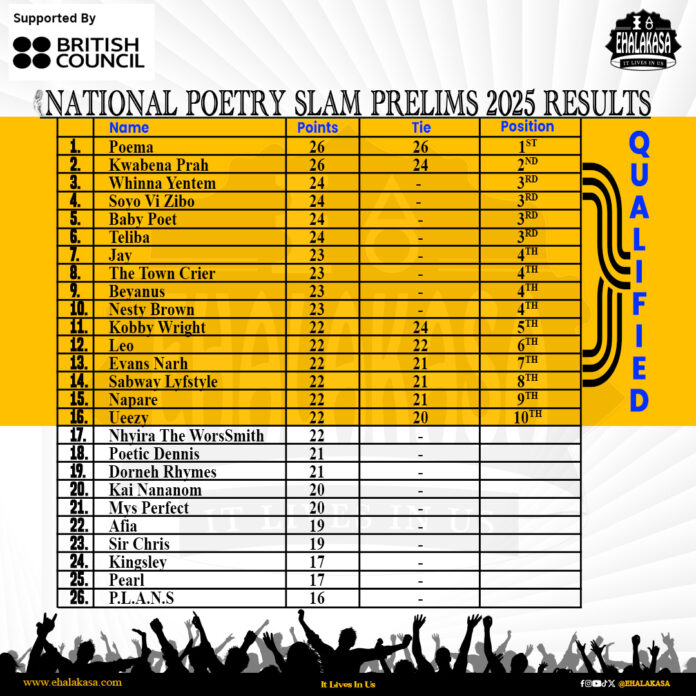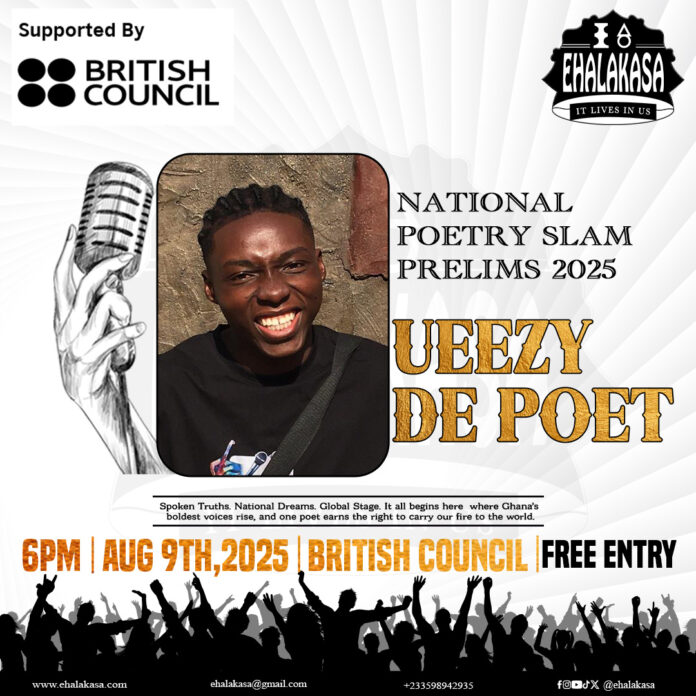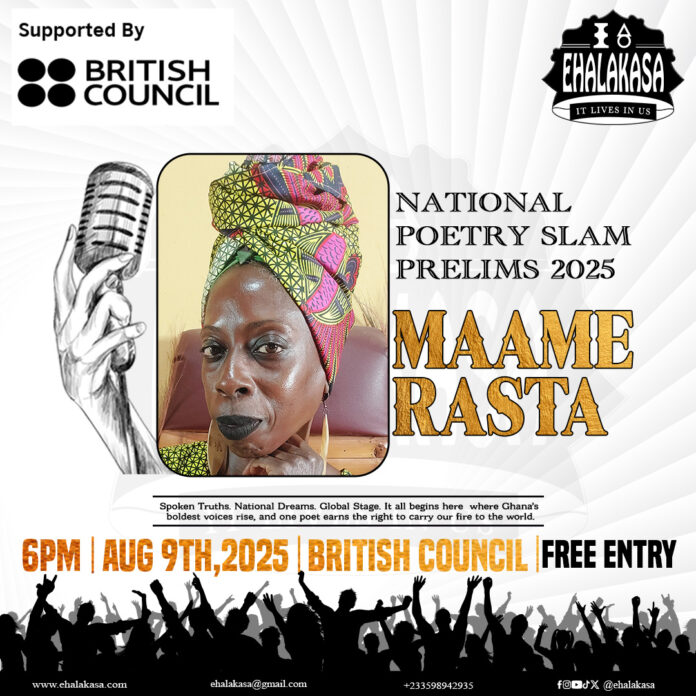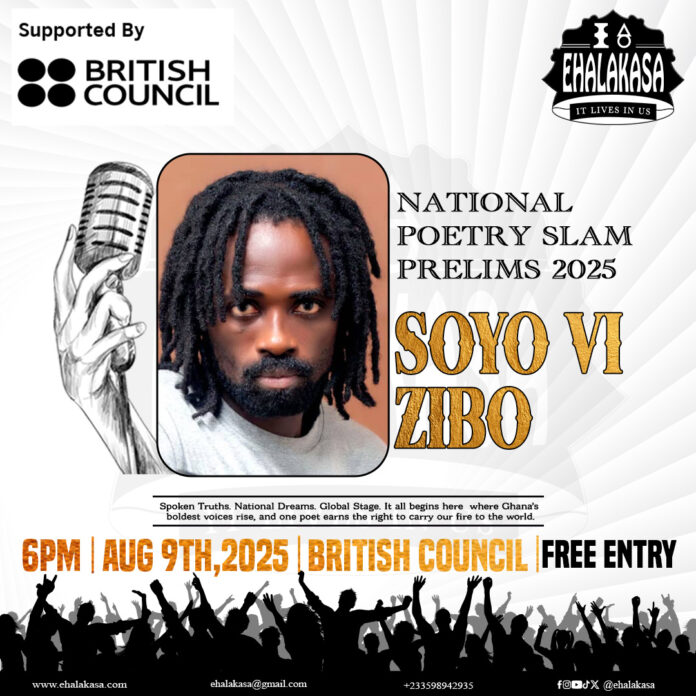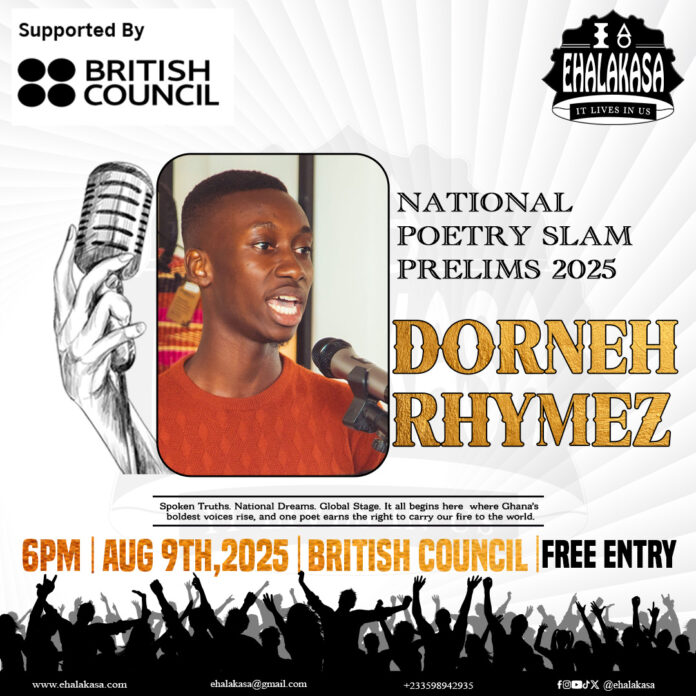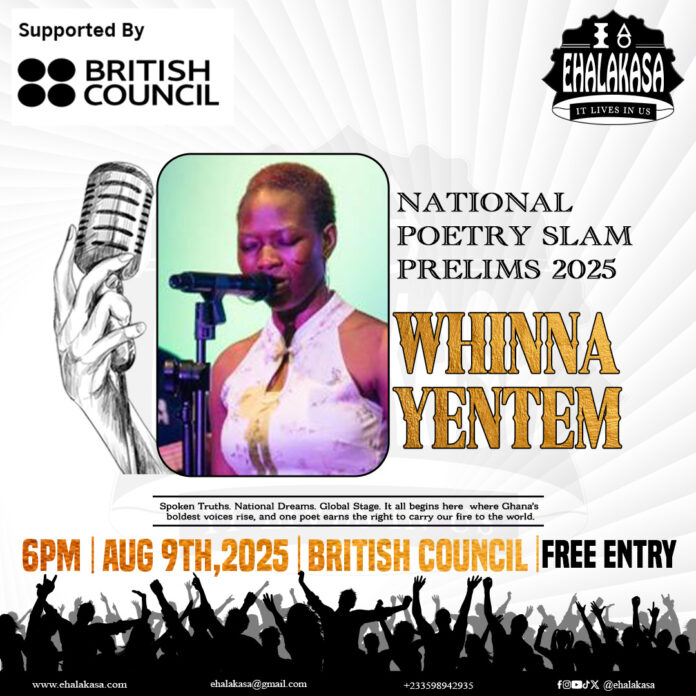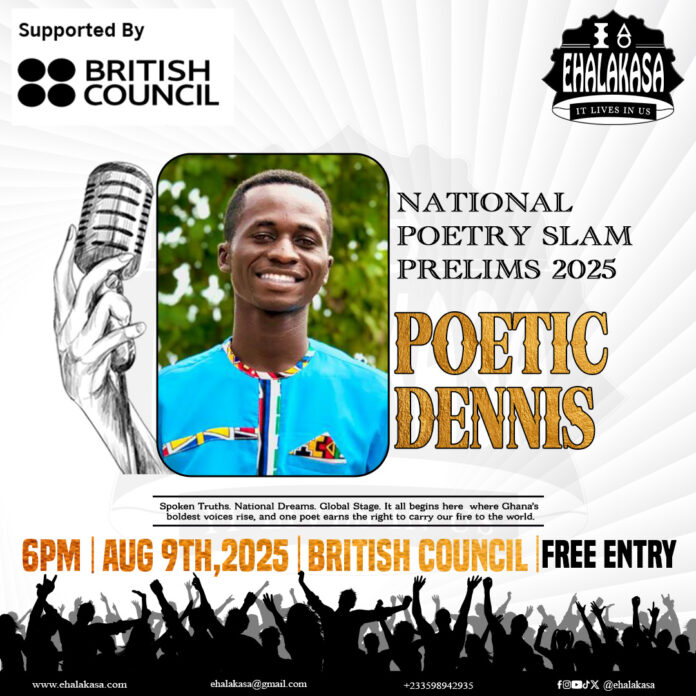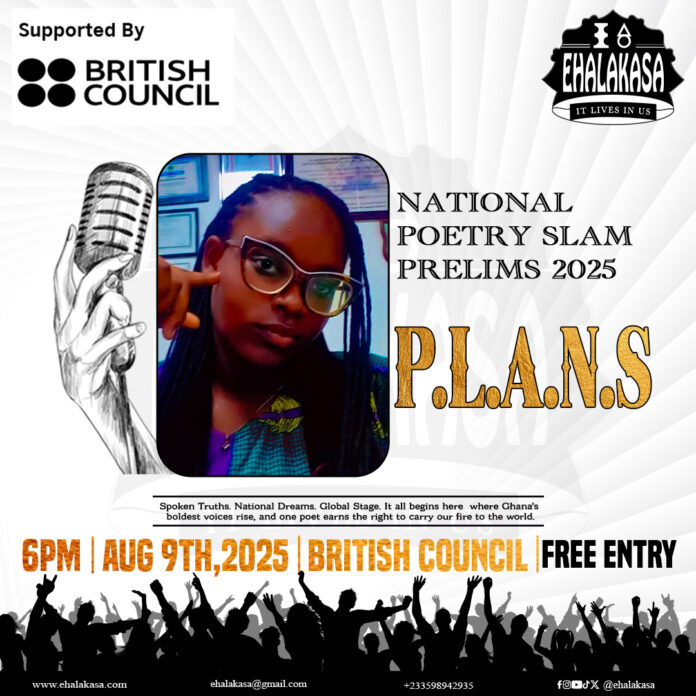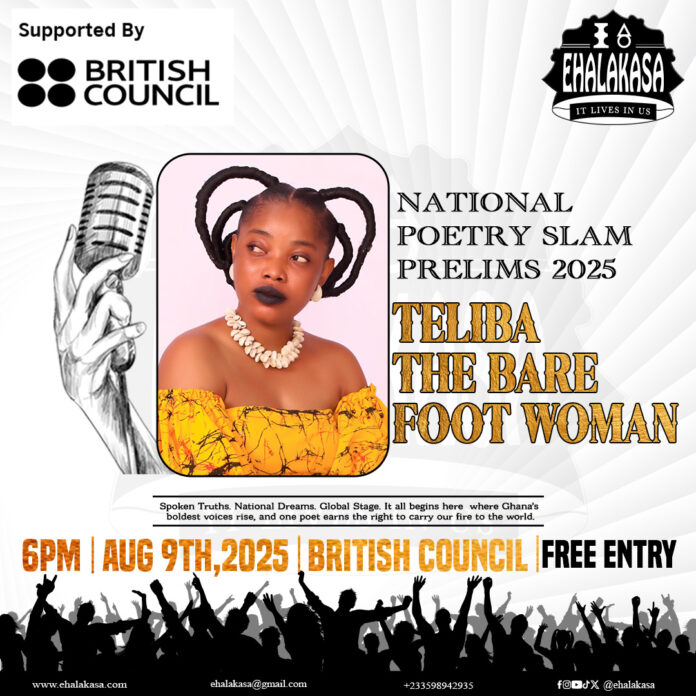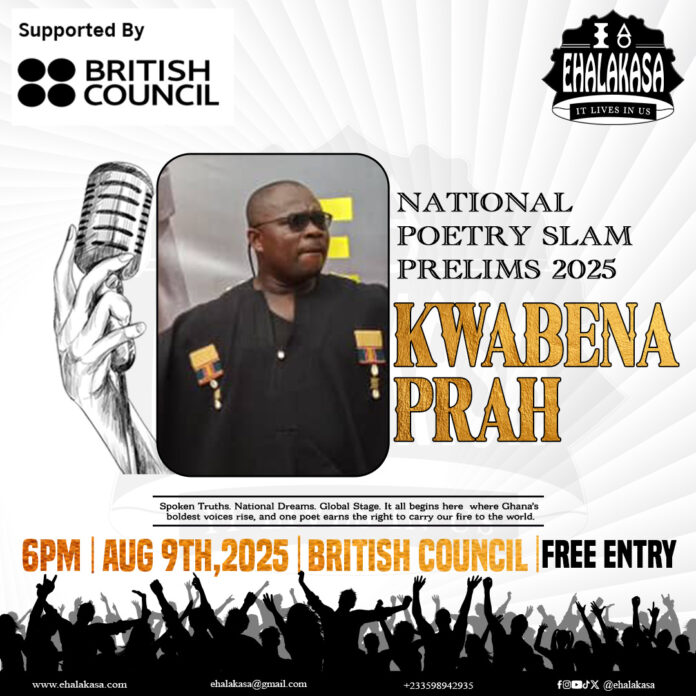Ehalakasa’s National Poetry Slam Prelims ignite the race to represent Ghana on the global stage in 2026.
Accra, Ghana, August 9, 2025 The British Council Hall was alive with rhythm, rhyme, and raw emotion as 26 of Ghana’s finest spoken word artists battled for a coveted place in the National Poetry Slam Final. By night’s end, only 16 emerged victorious, inching closer to the ultimate prize the honour of representing Ghana at the 2026 World Poetry Slam Championship in South Africa.
In a contest where every syllable counted, Poema and Kwabena Prah led the charge with 26 points each, delivering performances that married precision with passion. Following closely were the equally captivating Whinna Yentem, Soyo Vi Zibo, Baby Poet, and Teliba, each securing 24 points and a joint third-place finish.
The list of finalists reflects a diverse blend of voices, from seasoned veterans to rising stars. Each poet brought their own lens to the stage, offering perspectives that cut across identity, politics, love, resilience, and social change.
“It’s more than just poetry. It’s a movement, a platform, and a chance to carry Ghana’s voice to the world,”said an Ehalakasa representative after the event.
The competition now shifts to the National Poetry Slam Final on November 1, 2025, where the stakes will be higher, the verses sharper, and the spotlight brighter. From that night, one poet will wear the national crown — and with it, the responsibility of championing Ghana’s slam poetry on the world stage.
Qualified Poets for the National Final (Top 16):
-
Poema (26)
-
Kwabena Prah (26)
-
Whinna Yentem (24)
-
Soyo Vi Zibo (24)
-
Baby Poet (24)
-
Teliba (24)
-
Jay (23)
-
The Town Crier (23)
-
Beyanus (23)
-
Nesty Brown (23)
-
Kobby Wright (22)
-
Leo (22)
-
Evans Narh (22)
-
Sabway Lyfstyle (22)
-
Napare (22)
-
Ueezy (22)
With the preliminaries concluded, the countdown begins. Who will rise on November 1st to carry Ghana’s poetic spirit to the world in 2026?

